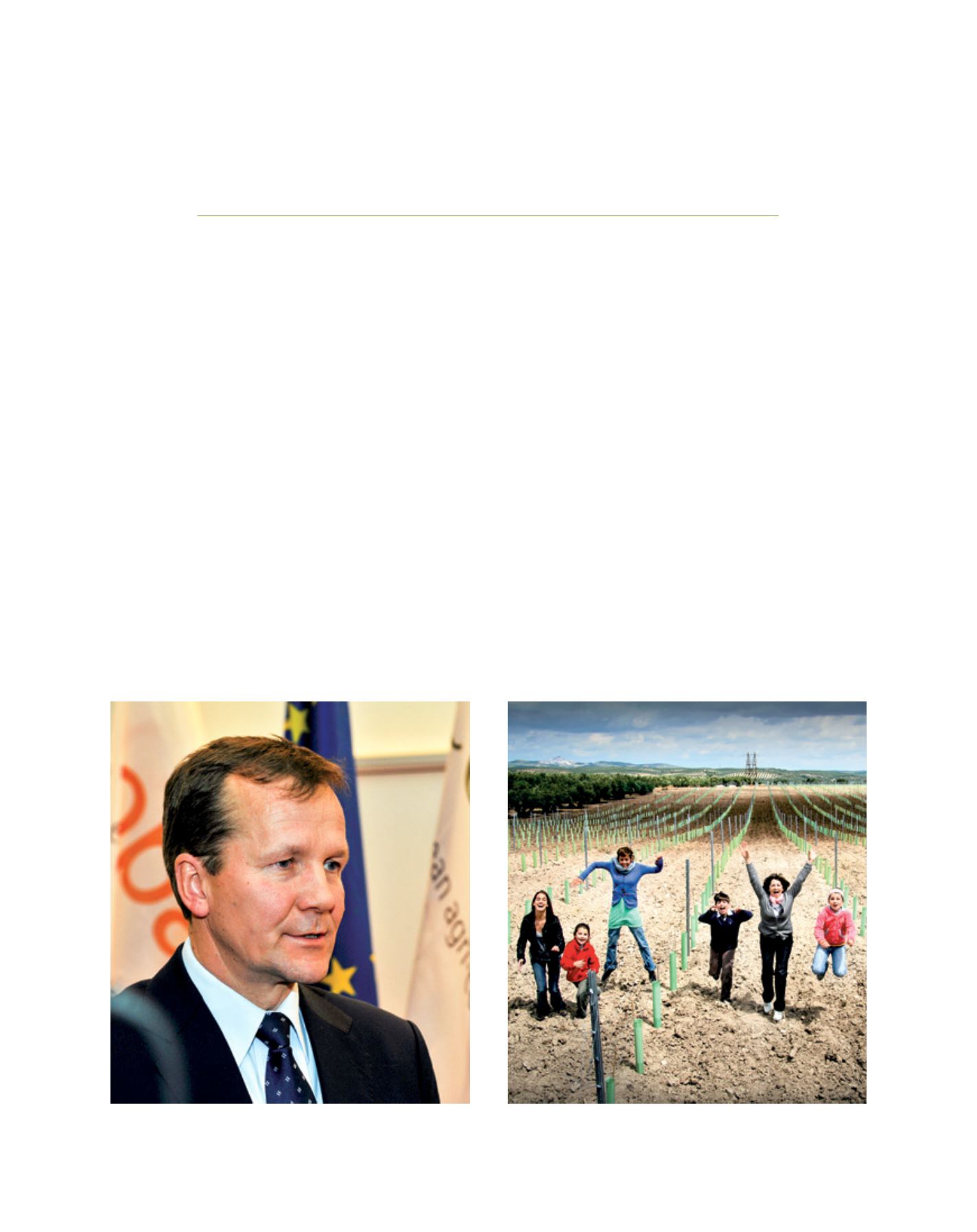

[
] 181
The International Year of Family Farming
and the importance of family farms
Pekka Pesonen, Secretary General, Copa-Cogeca
I
n the United Nations International Year of Family
Farming in 2014, Copa-Cogeca Secretary-General
Pekka Pesonen highlighted the increasing importance
of family farms – the backbone of rural economies. He
outlined key actions needed to realize their full potential
in creating jobs, boosting European Union (EU) economic
growth, providing quality food, helping to feed the world
and caring for the environment.
Coming from a family farm himself, Pesonen said: “I am
glad that the United Nations chose 2014 as the International
Year of Family Farming to focus world attention on the role
of family farms in alleviating this hunger, malnutrition and
poverty at the same time as protecting the environment. It is
crucial to have a dynamic, modern, resilient agriculture in the
future which gives family farms a viable future and ensures
food security for millions of people across the world. This
is particularly important given that world food demand is
expected to grow by 60 per cent by 2050.”
The EU agriculture sector, which employs almost 26
million people, most them on family farms handed down for
generations, is a key driver for growth and jobs in rural areas,
providing quality sustainable food supplies for 500 million
European consumers at the same time as maintaining the
environment and biodiversity. EU-28 agricultural production
is worth over €400 billion. The EU is also the world’s number
one exporter of agricultural and food products, representing
three-quarters of the EU net-trade balance.
Yet family farms are facing increasing challenges such as
high input costs, climate change and an increasing risk of
extreme weather events, and barriers to trade. They are also
currently being hit by international politics – something
which they are not responsible for. Often the producer price
drops resulting from these are not passed onto consumers,
providing a new opportunity for retailers to cut prices to
producers further and causing additional imbalances in the
EU agrifood chain. With farmers getting, for example, only 8
per cent on average of the price of a loaf of bread, family farms
Copa-Cogeca Secretary-General Pekka Pesonen highlighted the increasing
importance of family farms as the backbone of rural economies
Family farmers need a quality of life and income that is comparable
to other sectors of the economy
Image: Copa-Cogeca
Image: Copa-Cogeca (Winning photo from Asaja Photo Competition)
D
eep
R
oots
















